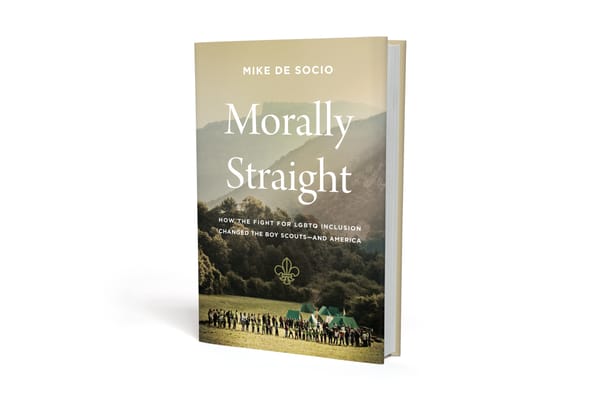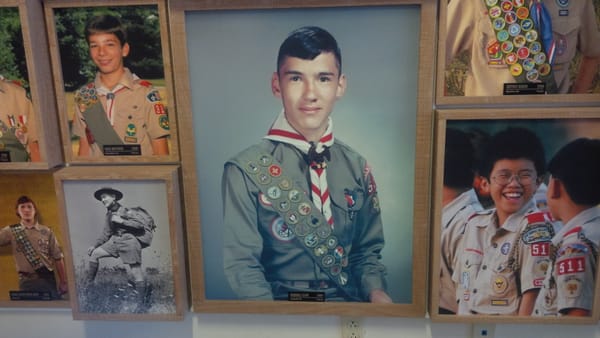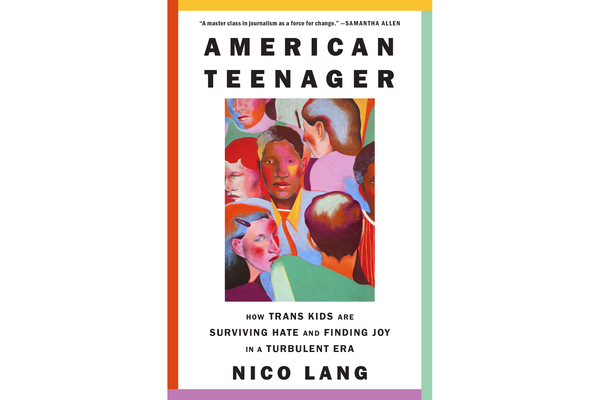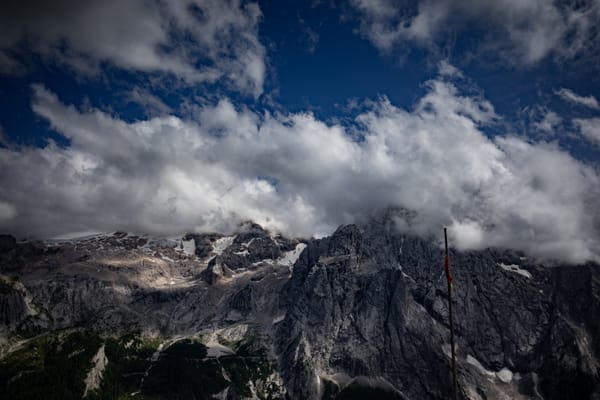Why religion shouldn't be a barrier to supporting trans and nonbinary kids
Jamie Bruesehoff, author of the new book "Raising Kids Beyond the Binary," offers us many lessons on how to love and celebrate the youth who need it most.
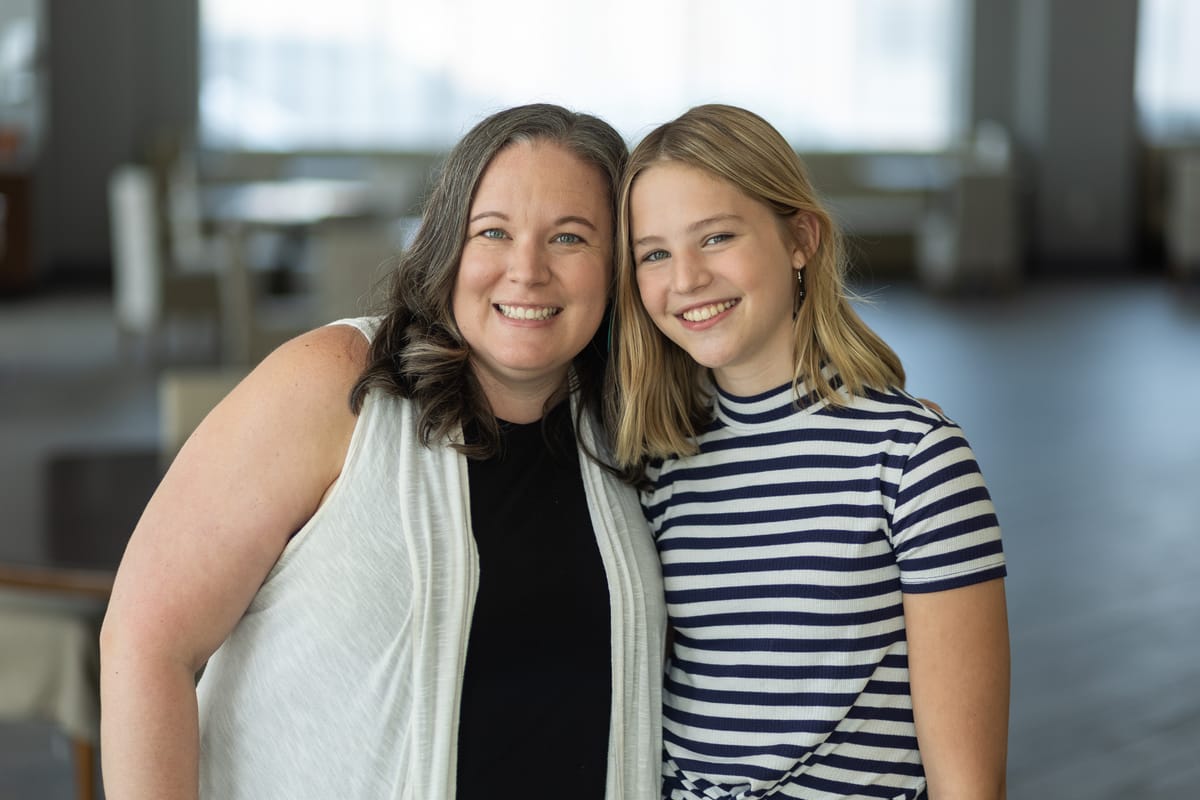
When most people think about the membership battles in the Boy Scouts of America, they think of it as a conflict between the religious community and the LGBTQ community.
Much of the reporting around the issue—including some of my own—has framed these as two fundamentally oppositional forces. But that’s simply not true.
From the earliest days of this policy debate, there were religious denominations writing letters and court briefs advocating for gay inclusion in the BSA. Just as the Church of Jesus Christ of Latter-day Saints lobbied hard against LGBTQ inclusion, Methodist and Episcopal churches (among others) were vocal in their support of it.
That’s why I’m so excited that I had a chance to talk to Jamie Bruesehoff, author of the new book, “Raising Kids beyond the Binary: Celebrating God’s Transgender and Gender-Diverse Children.” Our conversation, which has been edited and condensed for clarity, is a bracing reminder that many LGBTQ people are—and always have been—people of faith. And that faith communities have a crucial role to play supporting trans and nonbinary kids.
Mike De Socio: What inspired you to write this book?
Jamie Bruesehoff: I am the proud parent of three children, including a 16-year-old transgender daughter. And when Rebekah was born, we all thought she was a boy, but she deeply knows herself to be a girl. And she came out and socially transitioned when she was eight years old. And then the other big piece of my family's story and identity is that we are a family of faith. I grew up in the Lutheran church, I am married to a Lutheran pastor, and I have a master's degree from a seminary myself. And so this intersection of LGBTQ identities and supporting this transgender child in front of us, and our faith, was where we lived.
What we found when Rebekah transitioned was that—this was eight years ago—we could find—there weren't many, but they existed—resources on raising gender expansive kids. And we could find heavy theological discourse about queer theology and trans theology that my spouse and I, as seminary-educated folks, could understand. But there was nothing that helped your average parent trying to understand how to love the child in front of them not in spite of their faith, but because of their faith. That just didn't exist. And so I wanted to fill that hole.
I think even the subtitle of your book is kind of a provocation on its own: “Celebrating God's transgender and gender-diverse children.” Why was it important for you to frame it and phrase it in this way?
People of faith, specifically Christians, have and continue to do the loudest and most significant damage to the LGBTQ community, personally and politically. And too often, faith is a barrier to loving the people in front of you, whether that's a transgender child, or adult, or people in your community. And it just doesn't have to be. I wanted parents to know that they don't have to choose between their faith and their child.
People of faith need to understand that they have a responsibility to speak up: To boldly, loudly and joyfully proclaim that transgender people are made in the image of God, to be who they know themselves to be. At this moment, silence is complicity. It always has been, but we're in a more dire place than we've been in certainly my daughter's lifetime. And we need people of faith to speak up and to understand how to advocate and be equipped to do so. And so this book is a tool for parents, but it's also a tool for anyone who wants to make the world safer for all kids.
I'm glad you mentioned that, because many faith groups have been, for a long time, accepting of LGBTQ people. Why do you think they're not as loud as the ‘other side?’
I think there's this this nice white person thing—we'll just say it that way—of, we don't talk about that. "We're not saying anything bad. So like, what's the problem?" And people who speak out and use faith as a weapon against the LGBTQ community do so with with enormous funding and organization and strategy and intention. What I would describe as "good Christians," your average people in the pew, haven't understood what's at stake or what they're up against. They want to say, "Well, I'm not like that. Not all Christians." But because we're really up against a machine of hate, that's not enough.
One trap I’ve fallen into myself is to sometimes frame LGBTQ inclusion as a battle between religious interests and progressive people. What do we get wrong when we frame it in that way?
As someone who talks a lot about the LGBTQ community, we often talk about how we are not a monolith. There are a million ways to be part of this community and identities. And that's true about people of faith, about religion, and then even about Christians specifically. So when we make those sweeping claims, we count out a large community of voices who really understand LGBTQ people to be called and claimed children of God, again not in spite of their faith, but because of it. When we let one narrow view be the voice for all of Christianity, that's when really dangerous and scary things happen.
What can adult Scouting volunteers learn from your book about how to support trans and nonbinary kids?
People often ask me, “What do we do to support trans kids? How do you parent trans kids well?” And the good news is that [when you’re] working with young people, everything that helps us support trans kids is just good for all kids. Breaking down the gender boxes, breaking down the expectations of what it means to be a boy or a girl or a human in society, and creating space for all people to show up as themselves, is good for everyone. And so the book is filled with stuff that may be geared towards those who don't fit into those gender boxes. But it's all with the hope of breaking them down so we can all be more freely and fully ourselves.
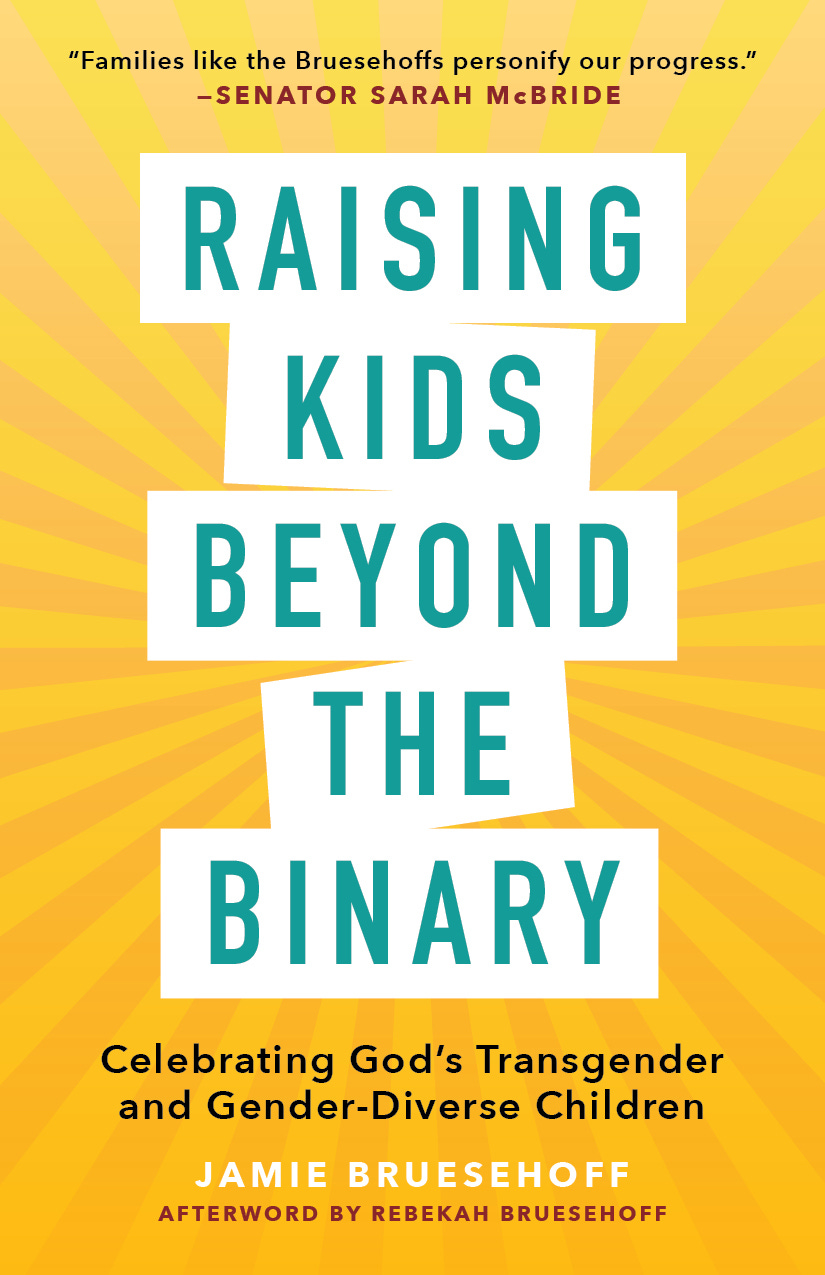
A lot of my readers are scouters who are already engaged in the work of LGBTQ inclusion. Are there any common mistakes or pitfalls you want to highlight?
This conversation, the language, the landscape is constantly changing. … Even people in the community can get overwhelmed by that at times. If we pivoted to better understanding, this is about a worldview, this is about creating spaces where we can learn about each other, and people can show up as themselves, and just a willingness to keep learning. Even the most ardent advocates will take something away from the book.
Another thing that was really important to me to have in the book is understanding that we can't address the harm that's coming to the LGBTQ community without also addressing racism, and white supremacy, and ableism and all of these things. Understanding that dismantling the systems that oppress people is something we need to do together.
How do we move beyond an “all are welcome” baseline to more of a celebration of trans kids?
What's behind the statement, "all are welcome," is that, you are welcome to come to my space, to my party, to my table as it is. And I think when we move past that, we're thinking about transforming spaces that are actually built for all kinds of people. And again, this goes back to, we talked about ableism, we talked about racism—not saying you can come to what we've built and we'll welcome you here. But instead, really considering what it looks like to create that space and learn from those people. It creates richer and more vibrant places and communities for all of us when we do that.
I think there's a tendency among really progressive LGBTQ people to write off institutions like the Boy Scouts and formal religion. What would you say to those people?
I am careful to encourage anyone to be connected to institutions that have caused them harm. That's a very personal thing. I am never going to say you should be at church or you should come back. But I do think there is immense power in mobilizing within systems. We need those folks who say an institution isn't for me, I'm out doing this in this way. And we need those within institutions, pushing them towards inclusion and progress and equity, because there's a lot of work to do. We need us all. And so institutions can be challenging, because of the structures they have, and those sturdy structures can be challenging to move. But they're also sturdy structures. And so when we get them to incrementally move, the impact is massive. So you look at Boy Scouts, I mean the impact of saying there's room for more people, for all people, for people of all genders, and the impact that has on the kid in a small town wherever, is huge. And that wouldn't happen if people aren't willing to work within the institution.

